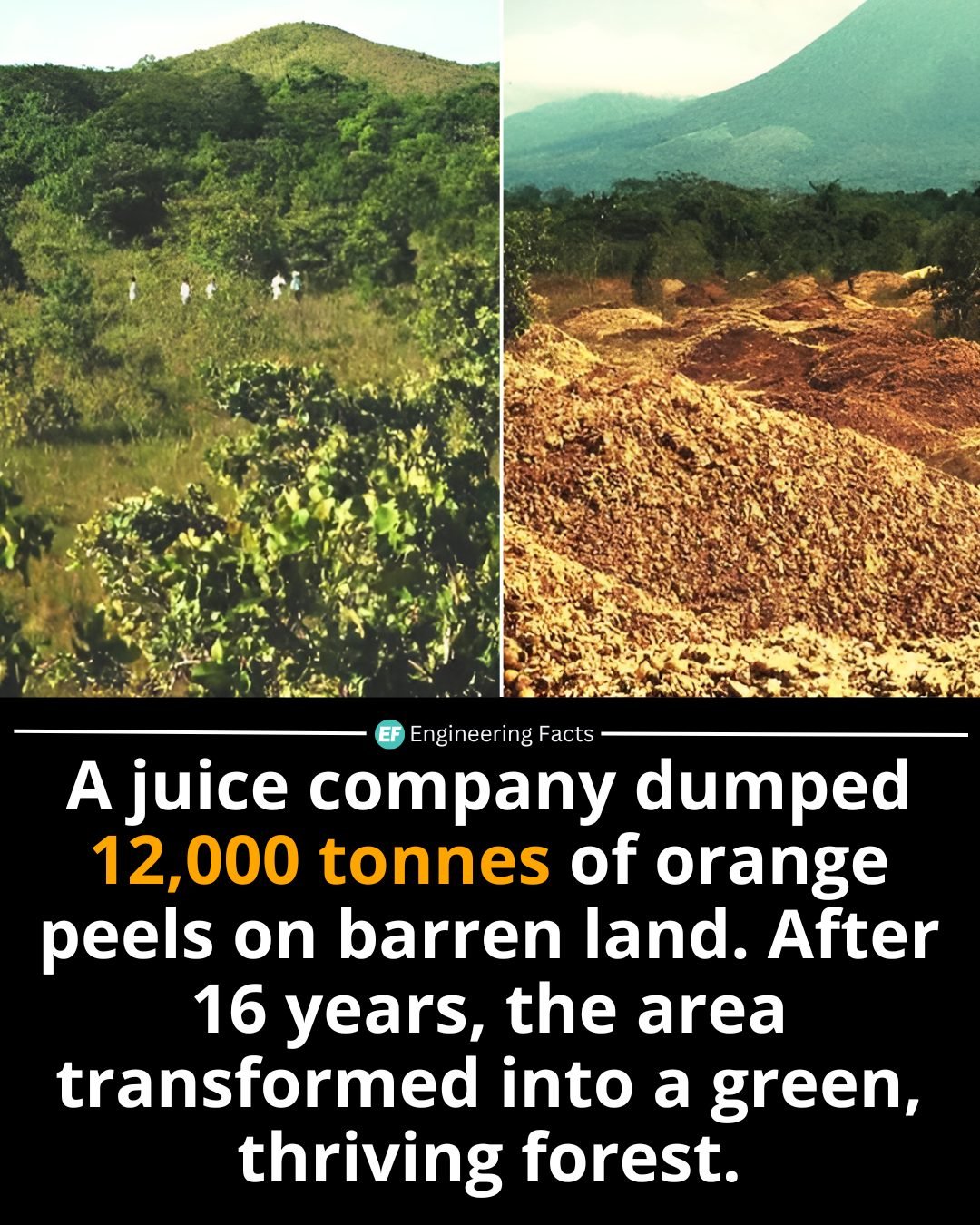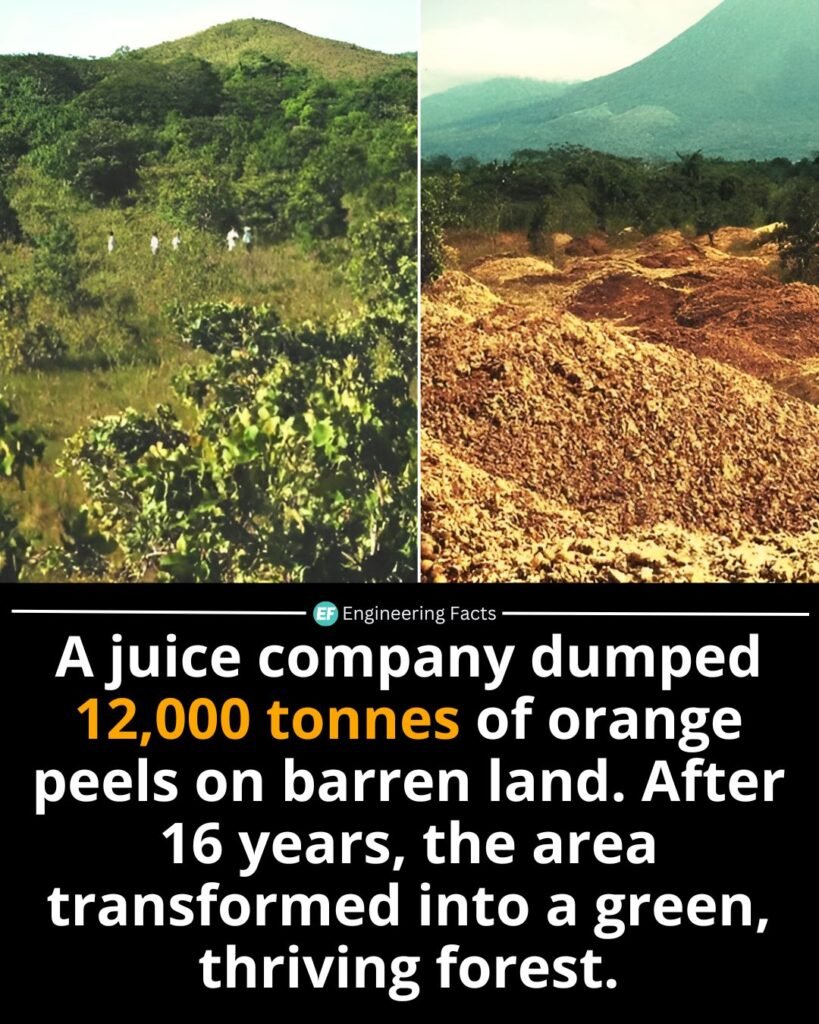[ad_1]
In 1997, scientists from Princeton University collaborated with a juice company in Costa Rica to conduct an unusual ecological experiment. They dumped 12,000 metric tons of orange peels on exhausted pastureland in a protected national park. After legal disputes delayed observation, researchers returned 16 years later—and the results were stunning.
The orange peel-treated land had richer soil, more tree biomass, and higher biodiversity compared to nearby control plots. Native vegetation thrived, and the area transformed into dense forest—demonstrating how organic waste can accelerate reforestation and ecosystem recovery on degraded land.
🍊 What This Means:
Instead of polluting landfills, some types of agricultural waste could be used to heal ecosystems. Nature, when given the right tools, knows how to rebuild itself.
,Reforestation ,EcoRestoration ,OrangePeelForest ,Sustainability ,GreenRecovery
Stay Connected with NewsRT:
For the latest headlines and urgent updates, visit our Breaking News section. If you want to stay informed about global affairs, our World News page brings you top stories from around the world.
For entertainment lovers, check out our Entertainment category to catch up on celebrity news, movies, and trending shows. Sports fans can follow live scores and in-depth match reports in our dedicated Sports section.
Stay on top of your health with expert insights and wellness tips on our Health page. For the latest financial updates, market trends, and stock analyses, visit our Stock Market section.
Don’t forget to explore our homepage for more top stories, exclusive reports, and real-time news updates curated for you.
